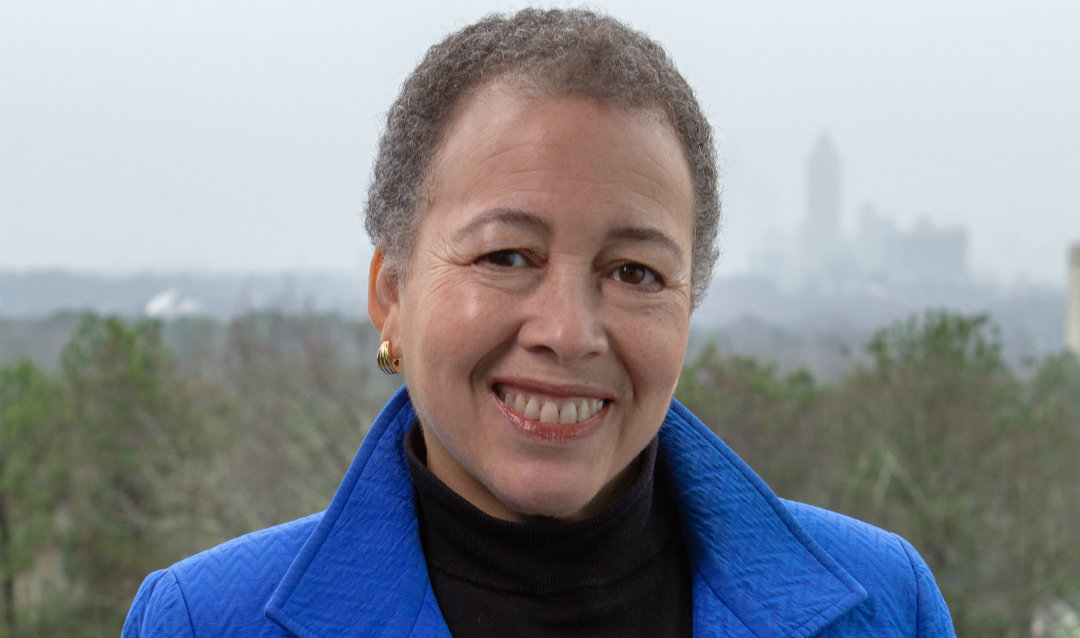The History of Racism
Racist history and past policies led to many of our current structures, which is important to learn and understand, Tatum said. She cited how, due to Jim Crow laws and the inequitable distribution of benefits, Black veterans returning home after World War II were denied many opportunities afforded by the GI Bill, such as college tuition grants, small business loans, and low-interest mortgages. These unlevel benefits have compounding effects over time, disadvantaging families across generations.
Similarly, when The Social Security Act was passed in 1935, there were certain occupations—largely dominated by Black people living in the South at the time—that were excluded from being able to draw benefits, Tatum said. While the Act was not overtly racially discriminatory, she explained, this stipulation meant some families had to support their elderly relatives using their own funds without the help of Social Security, leaving less money for things like supporting their child’s future college education, while others were able to use the benefits to advance the family's circumstances.
“We don’t always understand the way that racism has shaped our current ways of doing things in our society. You don’t even have to dig that deep—just scratch the surface...and you can see the way it’s been built in,” Tatum said.
Racism is a system of advantage based on race and has been built into our society, she said. The system was designed to benefit white people at the expense of people of color, which has roots in slavery but also in more recent policies that disadvantage people of color and other marginalized groups based on unequal value hierarchies.
What, So What, Now What?
Drawing on her psychology background and classes she’s taught on the psychology of racism, Tatum recommended taking a threefold approach to understanding what racism is, how it impacts us and how our racial identity is shaped through interactions and others’ perceptions of us, and identifying our unique sphere of influence for dismantling it—the “what,” “so what,” and “now what” approach.
“We all have a sphere of influence,” Tatum said. “Everybody influences someone.”
Recounting how she found her sphere of influence, Tatum said her students asked her why they didn’t have the opportunity to talk about racism until entering college and taking her class. Tatum discovered those K-12 teachers she talked to felt like they had never been trained to properly or effectively have those conversations with their students. So she talked to teachers about how to have those conversations. Then, hearing from these teachers, she discovered another barrier was getting support from principals. That led to a conversation with principals, and then superintendents. Of course, her book has now reached many, many other educators. Her point: she saw a problem and used her background, skills and experience to address it.
“What is your sphere of influence, who do you influence on a daily basis, and how can you use that to impact something you’re concerned about?” Tatum asked.
For instance, on college campuses, students can host educational programs for other students. Professors can foster inclusive classroom discussions. Classrooms, in particular, Tatum said, are prime places where systemic racism can be interrupted and should be addressed—in terms of curriculum, certainly, but also in terms of creating environments where students feel supported and successful. Institutions also have a responsibility to dedicate adequate supports and resources toward antiracist efforts so the burden doesn’t solely rest with passionate individual volunteers who can start to feel burned out, Tatum said.
Leading into a discussion of allyship, Tatum said good allies listen, take action, and make others feel seen and understood. They do not try to take over to solve problems but rather help to solve them by speaking up and being supportive—as “a partner, not a savior.”
Ending on a hopeful note, Tatum talked about how institutions can set actionable goals toward antiracism that are purposeful and meaningful and build momentum without overpromising or mischaracterizing, which can lead to community frustration. Taking action is key: “If we wait for perfection, we’ll never get started,” Tatum said. “Of course there will be missteps. But you have to start.”
Listen to the recording of the discussion on the website. The MLK Celebration Committee will host another discussion with Patrisse Cullors, co-founder of the Black Lives Matter movement, on April 28.





